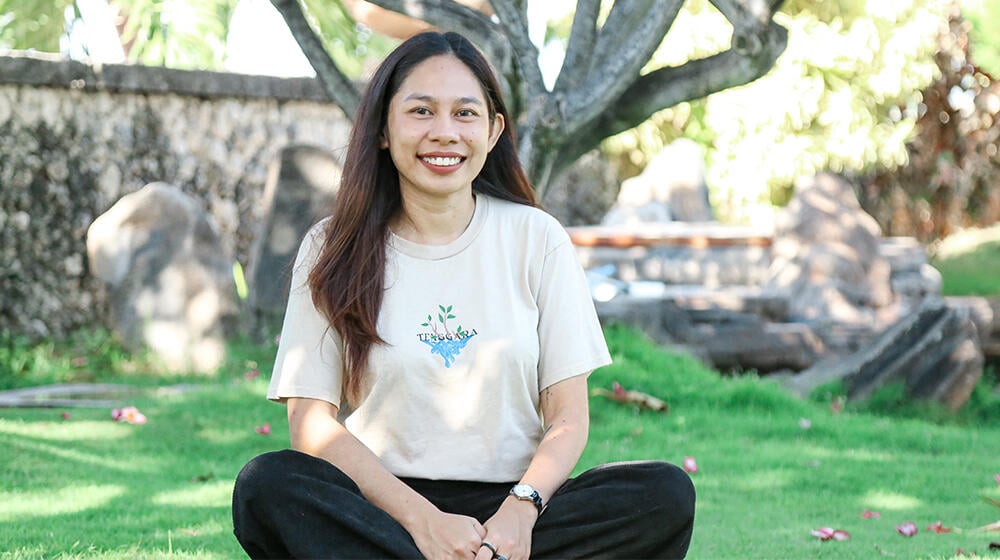In a region where open conversations about sexual and reproductive health remain a taboo, a small yet impactful initiative has been breaking new ground. Mariana Yunita Hendriyani Opat, affectionately known as Tata, established Tenggara Youth Community in 2016 to address the need of young people like her for reproductive health education and safe spaces in Kupang, East Nusa Tenggara (NTT).
“Tenggara started as a group that would hang out together and share our personal stories,” Tata recalls. “Some talked about their first periods, wet dreams, and others about being survivors of sexual violence. It became clear that there was a desperate need for a community where young people could talk openly about these issues.”
Based on the data from the Central Bureau of Statistics, NTT has the second largest number of disadvantaged districts in Indonesia. The school participation rate for 7-24 year-old boys is 74.96%, and for girls, it is 85.01% (BPS Kupang City, 2022), which illustrates the fact that many school-age children in Kupang are out of school. The role of community outreach becomes more critical in ensuring that young people who are out-of-school and in remote areas receive the knowledge they need to achieve their potential.
Tata’s journey into activism had not been clearly planned out in the beginning. Her early work as a volunteer at the Indonesian Planned Parenthood Association (PKBI) introduced her to the broader landscape of reproductive health issues. As she engaged with youth through PKBI, she realized how underserved the younger generation was in accessing reliable information, especially in places like NTT, where geographic isolation further limits access to essential sexual and reproductive health resources. Recognizing the urgency, Tata, with the help of her friends, began creating and distributing posters about sexual and reproductive health issues to spread awareness. Their efforts, though informal at first, quickly grew into a grassroots movement. Tata and her friends' role in reaching children outside of school with minimal access to information, particularly in outermost islands, is vital for bridging the gap in education and reproductive health knowledge, ensuring that no child is left behind.
“We didn’t expect so many people from different backgrounds to show up,” Tata explains. “It turned out that many were dealing with the same frustrations—feeling like there was nowhere to turn for information or support on issues like sexual and reproductive health and gender-based violence.”
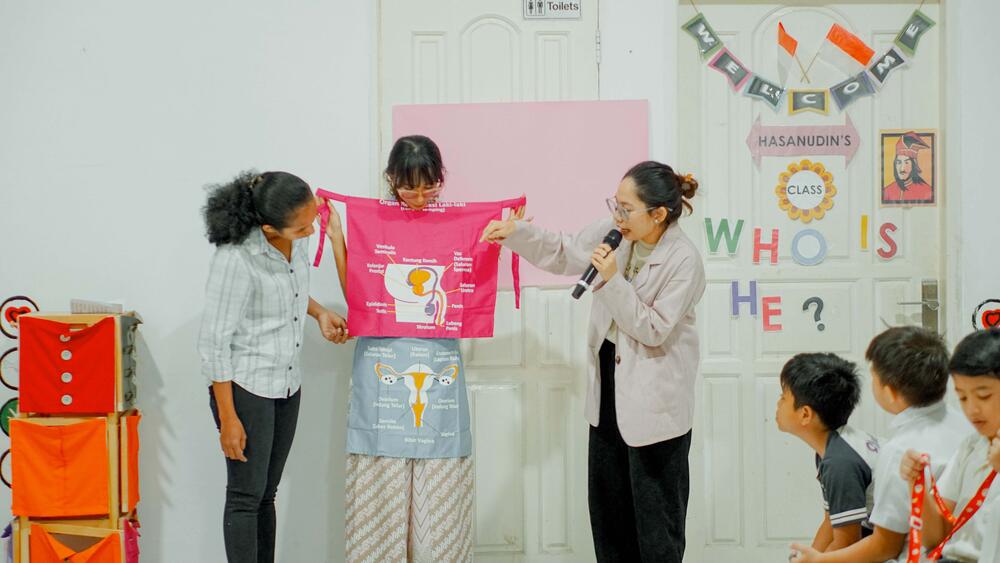
The Impact of Tenggara
Despite its growing influence, Tenggara faced significant challenges from the outset. The mere mention of reproductive health in Kupang often evokes misunderstanding. “People think we’re talking about pornography or promoting premarital sex, when we provide safe spaces to discuss sexual and reproductive health,” Tata says. “It’s hard to break through that stigma.”
Violence against women and children is rampant in NTT, with 323 cases reported from January to December 2023 (DP3A NTT, 2024). In response to this alarming trend, Tata, together with Tenggara, developed an initiative to educate children and adolescents about sexual and reproductive health and the prevention of gender-based violence. One of their flagship programmes is “Bacarita Kespro”, meaning "telling stories," which specifically targets adolescents from poor, marginalized, socially excluded, and underserved groups.
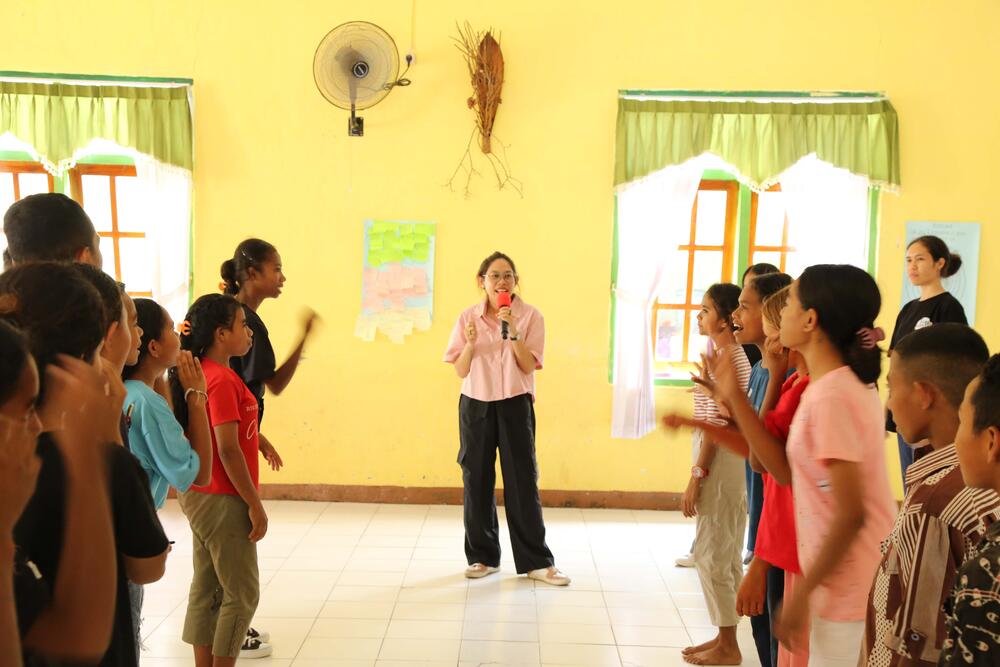
To overcome barriers, Tenggara adopted a strategic approach by engaging religious leaders in the church, using innovative methods like storytelling, games, use of props during sermons, and church camps. Tata describes this as a critical turning point for the movement:
“People in NTT, in this case Timor, listen to their religious leaders. So, we approached them first, explaining our mission and the importance of the issues we work on. Once they supported us, it was much easier to gain the trust of the community.”
The approach paid off as religious leaders began speaking about the importance of reproductive health and preventing gender-based violence from the pulpit, and slowly but surely, the community started to listen.
Seprianus Y. Adonis, a pastor in Neke Village, South Central Timor Regency, East Nusa Tenggara, actively confronts the pervasive issues of child marriage, sexual violence, and the lack of sexual and reproductive health knowledge in his community. Determined to address these challenges, he made reproductive health education a cornerstone of his church’s routine activities, both as a means of tackling these problems and preventing them in the future.
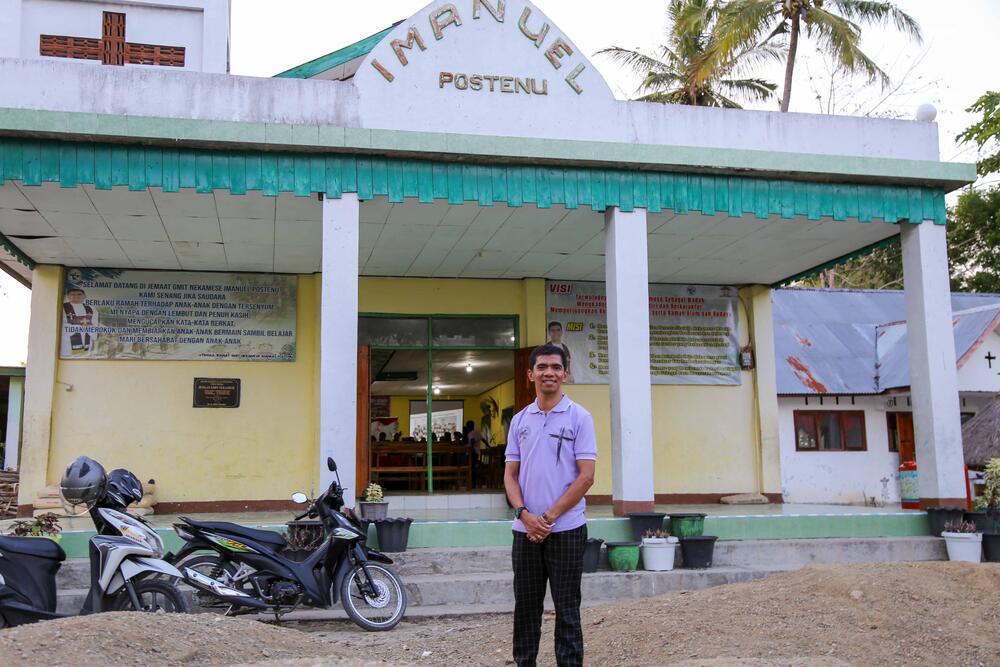
For over five years, Pastor Adonis has partnered with Tenggara and together, they have fostered understanding among local youth about their rights and how to respond to issues like forced marriage and sexual harassment. “Our children now know who they are and how to protect themselves,” he said, reflecting on the positive outcomes of this collaboration.
Today, Tenggara has reached more than 4,000 young people across 30 communities in NTT, making a tangible impact on reproductive health education in the region. Schools and churches now request workshops on sexual health. “We’ve seen the biggest change when the requests to talk about reproductive health come from the community itself,” Tata notes.
The impact of Tenggara goes beyond awareness. In one village, for instance, the movement helped shift traditional practices surrounding circumcision. After learning about the dangers of unregulated traditional circumcision methods, a group of 22 teenage boys requested a mass medical circumcision performed by health workers.
“That’s the kind of change we hope to inspire,” Tata says. “When people are informed, they take action to protect themselves and others.”
However, the success of Tenggara hasn’t come without personal cost. Much of the funding for the movement comes directly from Tata’s own pocket. “About 60 percent of the expenses I cover myself,” she reveals. “It’s not easy, but I’m willing to do it because I know how crucial this work is. I’m a survivor of sexual violence myself, and I understand the importance of having support and access to resources.”
For Tata, Tenggara is more than just a movement—it’s a lifeline for young people in a region that has long neglected their sexual and reproductive health needs. One of her long-term goals is to integrate reproductive health education into the school curriculum. “It’s something that needs to start at home and be reinforced in schools,” she argues. “Too many young people are growing up without the knowledge they need to protect themselves.”
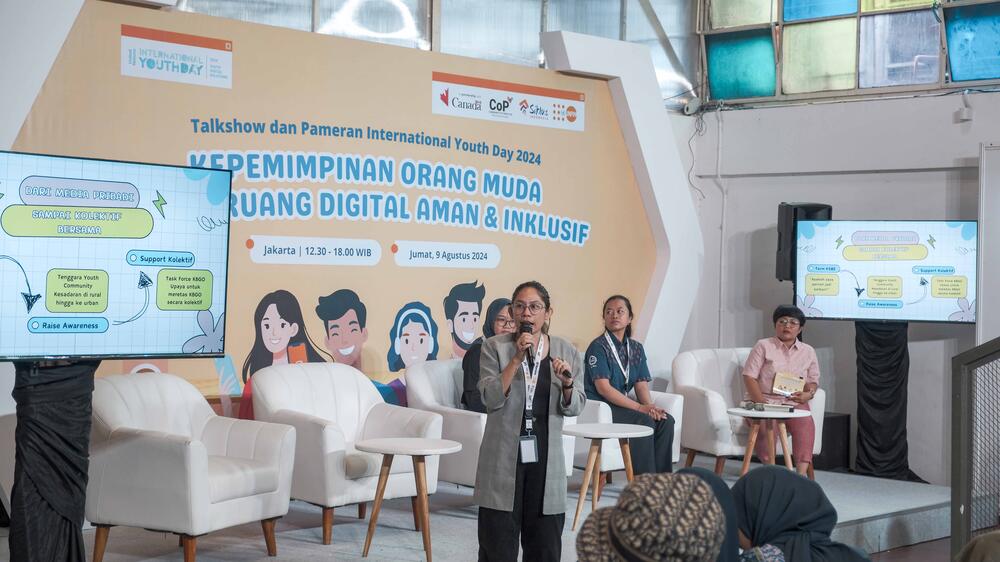
The Future of Tenggara
Through partnerships with other youth organizations and initiatives like the UNFPA Community of Practice (CoP) for sexual reproductive health content creators, Tenggara continues to grow and evolve. The CoP has provided a platform for Tenggara to collaborate with other communities across Indonesia, sharing resources and learning from each other’s experiences. “It’s been a game-changer for us,” Tata says. “It showed us that we’re not alone in this fight. We’ve learned so much from other regions that face similar challenges.”
Looking ahead, Tata hopes to expand Tenggara’s reach by training local peer educators in villages to continue the work in their own communities. As Tenggara moves forward, Tata remains determined to challenge the status quo. Her message to young people, especially women, is simple:
“Know your body, love your body. When you understand your body, you have the foundation to make informed decisions about your sexual and reproductive health.”
—
Lucky Arifianto Sugiarto Putra
Media Assistant, UNFPA Indonesia

